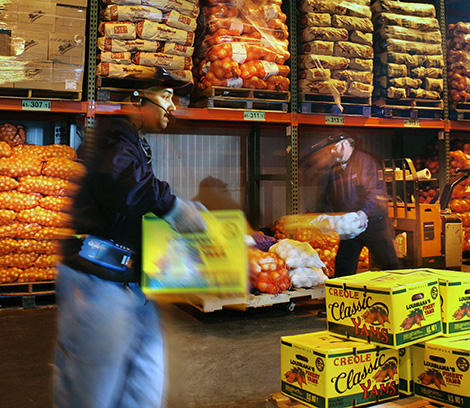Businesses throughout the food supply chain are using a variety of traceability tools to capture critical information during the path from the field to the consumer. Traceability has always been viewed as an important capability within the supply chain, but FSMA, coupled with retailer and consumer demand, is pushing it to the highest levels yet.
Technology solutions that provide continuous identification and verification include mobile computers, scanners, RFID and mobile printers. While growers, packers, wholesalers, distribution centers and retailers involved in the fresh produce, poultry, meat, and seafood segments are using these technologies, speculation continues about adequate adoption levels.
The larger food providers are embracing track and trace technologies, while smaller business have been much slower to adopt, according to Bruce Stubbs, director of industry marketing at Honeywell Sensing & Productivity Solutions. “It’s going to be difficult to convince the smaller growers to invest in the technology—a lot of them see it as a cost,” he says. “What’s helping is that the retailers are starting to push back and say they are going to require their suppliers to be compliant with [traceability] mandates and if not, they won’t do business with them.”
Out in the field, companies are leveraging scanning and printing technologies, including smart printing technology (essentially a PC with printing capability). The printer hosts data capture and traceability software, providing the tasks and traceability through the software to the scanning devices. It can capture and print the food traceability label, which contains the discreet information, at the point of harvest. At the transportation level, businesses are using mobile computers to scan and capture product information that tracks down to the details from what part of a field, or even which tree in an orchard, a product has been harvested. Traceability technologies are including sensors throughout the cold chain to monitor temperature and humidity as the product is transported from point A to B. All information moves forward into the production facility and the retailer’s distribution center. Once at the retail store level, grocers will be able to pinpoint, within potentially thousands of stores, the specific batches and lots, a key capability in the instance of product issues and recalls.
Traceability is a holistic process, and the potential for its continued growth within the food industry is high. “I see it becoming more prevalent as consumers demand it, and retailers and manufacturers must adapt. I also see them moving away from paper,” says Stubbs. “We’re close; it’s almost like there’s a trickle in the dam right now, but I really believe that over the next couple years, the dam will break and most [companies] will need to adopt [traceability solutions] or they won’t be able to effectively do business with a lot of the food retailers.”
Stubbs also anticipates an increased adoption of 2-D barcodes versus 1-D linear laser barcodes, as 2-D barcodes can contain far more information. “We are at the tip of those technologies—they exist. It’s just the integration of these systems and providing the information in a format at the supplier or food manufacturer level,” he says.
How is your company implementing traceability solutions? What challenges and benefits are occurring as a result?





